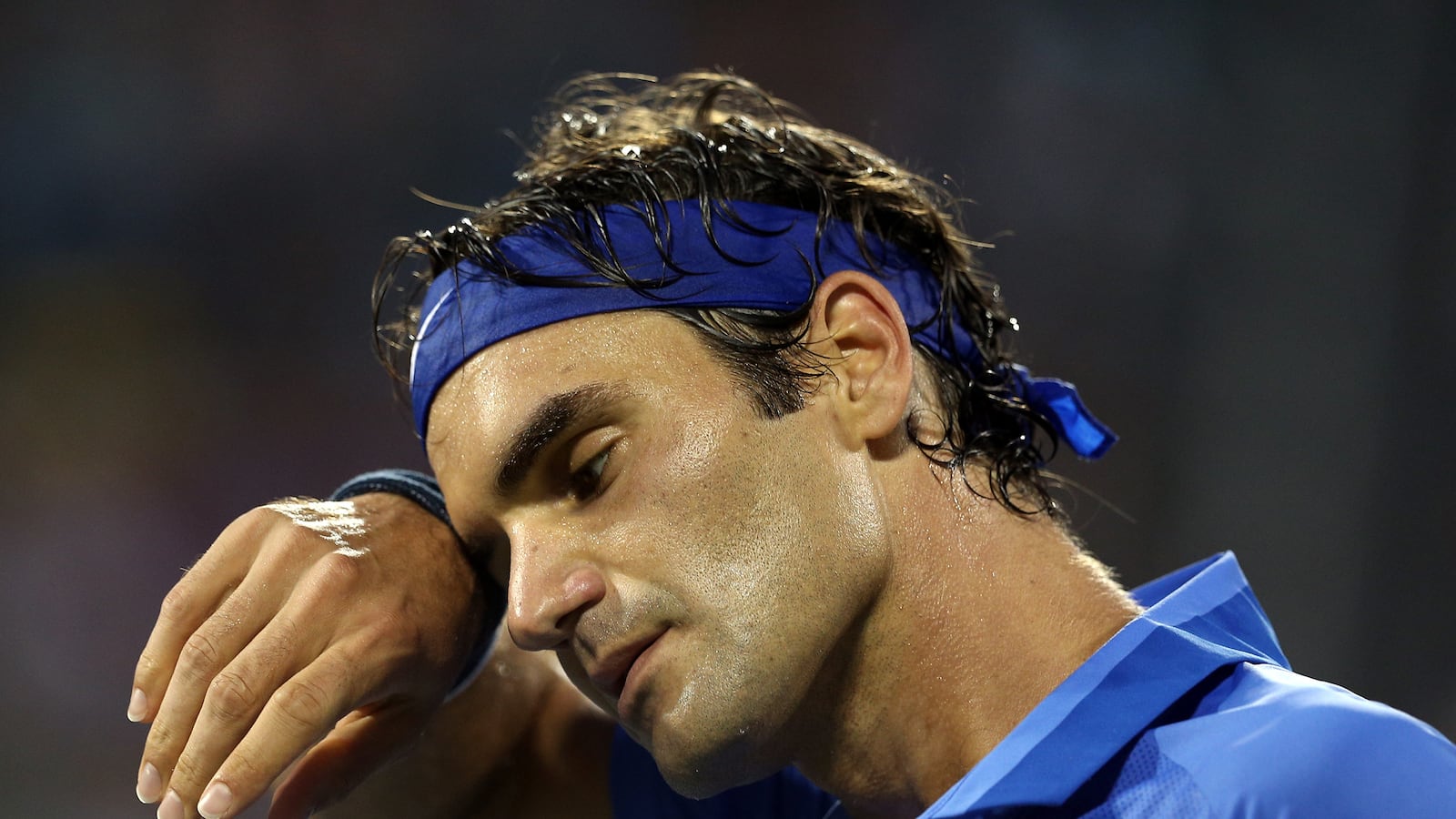Roger Federer is happy. Unfortunately, he’s lost his mojo.
Julien Benneteau, Kei Nishikori, Sergiy Stakhovsky, Federico Delbonis, Daniel Brands, and Tommy Robredo are happy, too. A few years ago, these guys would’ve just been happy to play a match against the tennis god. Today, they’re kicking his ass.

“I kind of self-destructed,” Federer said after losing to Robredo in the fourth round of the U.S. Open. "The story of my life: when I lose, people are shell-shocked to see me play this way." Federer is in decline. It was inevitable. The 32-year-old is ranked seventh in the world (though that’s going to drop). He tweaked his racquet size, the tennis equivalent of flailing in the water. He wore colored shoes at Wimbledon—what was once his tournament—got yelled at, then lost early. His confidence, much like his hairline, has receded. Watching Federer play tennis is still a religious experience, in the self-flagellation sort of way.
But let’s go back to that happiness. Federer found it at the London Olympics last year. For the 17-time Grand Slam champion, the gold medal was the one thing he didn't have. And he wanted it real bad. He had just resuscitated his career by dumping Andy Murray in the Wimbledon final. He was back on the same court, against the same guy. The medal was his.
Federer tells The New York Times’s Michael Steinberger that he was crushed after losing the match. Before the medal ceremony, he asked to be alone. “As he sat there, though, he turned the situation around in his mind: yes, he’d wanted the gold, but he had won silver, a rare medal for Switzerland (‘we don’t make that many’) and instead of dwelling on the loss, he decided to be happy with what he had accomplished.”
It’s this “total distance” from the game, this Zen-like calm, that has also totally sucked Federer’s ability to win. Gone is the man who said he had created a “monster” of expectation after he lost to Novak Djokovic in the 2008 semifinals in Melbourne and ended a ridiculous streak of 10 consecutive Grand Slam finals. It’s the same monster that, after losing his third straight final against Rafael Nadal a year later, made him cry on court and say, “God, it’s killing me.”
We didn’t understand why Federer was losing. Turns out, he didn’t either.
Since that moment, much has changed for Federer. His twin daughters were born. He passed Pete Sampras on the all-time Grand Slam list. He understands that Nadal’s knees and the rise of Djokovic and Murray mean that his record is somewhat safe. As Federer told The New York Times, “You don’t panic at this point.”
It’s not easy watching a legend in his twilight. Grantland’s Bill Simmons wrote about the decline of a sports star, “Almost always, you're somewhere in your thirties, so you don't look dramatically different than you did when you mattered.”
But though Federer is getting old and his losses are piling up, it’s not time for a eulogy just yet. In a tight quarterfinal loss in Cincinnati, he was his vintage self, gliding across the court, smacking forehands, and slapping serves at his archnemesis. That was less than a month ago.
You see, Nadal is the one person who can give Federer his mojo back. He still wants to beat him. Federer will win another Grand Slam. Monsters don’t die that easily.






